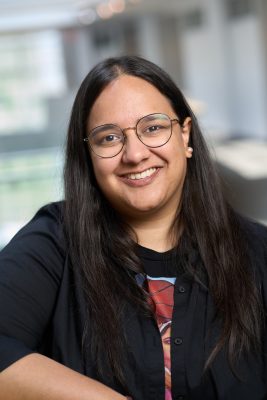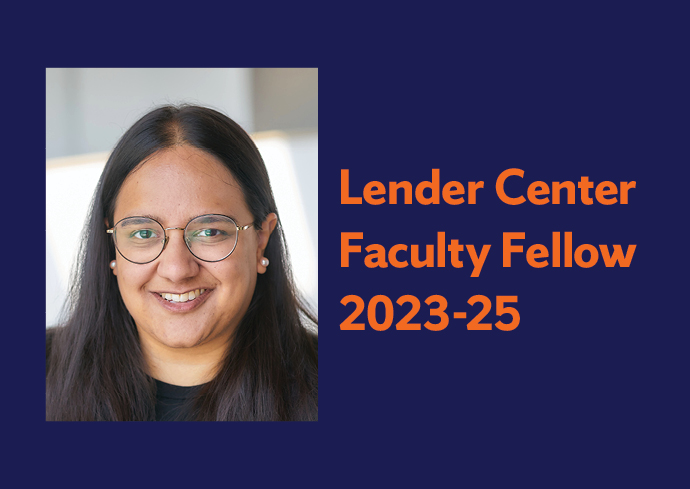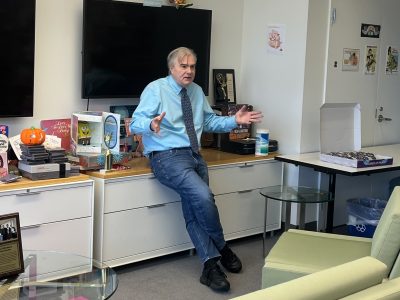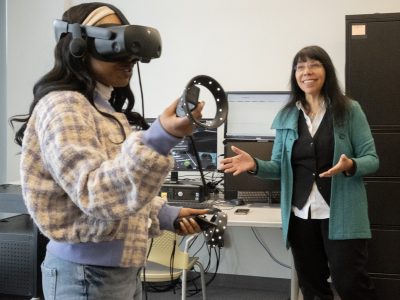Newhouse School Assistant Professor Named 2023-25 Lender Center Faculty Fellow
Nausheen Husain, whose work examines media coverage of Muslim people and communities and the impact of that coverage, has been selected as the 2023-25 Lender Center for Social Justice Faculty Fellow.
Husain is an assistant professor of magazine, news and digital journalism in the S.I. Newhouse School of Public Communications, where she teaches data and documents journalism. Before joining the University in 2021, she did data reporting and wrote for the Chicago Tribune on state surveillance of Muslim Americans, carceral units targeting Muslims, the 2017 “Muslim Ban,” refugee communities and the government’s historical disinvestment in Chicago’s communities of color. She also helped build back-end infrastructure for election reporting and contributed to visual journalism projects.

Marcelle Haddix, associate provost for strategic initiatives, whose office oversees the Lender Center for Social Justice, says determining how news coverage can both inadvertently and knowingly impact everyday life as well as perspectives about specific individuals and communities “is an engaging and significant investigation. We look forward to Professor Husain’s findings and the opportunities she presents to engage our students regarding how journalism and journalists may be exacerbating complex community and individual situations.”
Student Fellow Selection
Each year, several students are selected as Lender Center student fellows to work with the faculty fellow for the two years of their project. Students from all academic disciplines who are passionate about finding solutions to complex problems are invited to apply. More information about the application process and deadlines will be announced early this fall.
Q&A with Husain
We recently sat down with Husain to discuss her project, “The Stories We Told Ourselves: The American ‘War on Terror.’”



